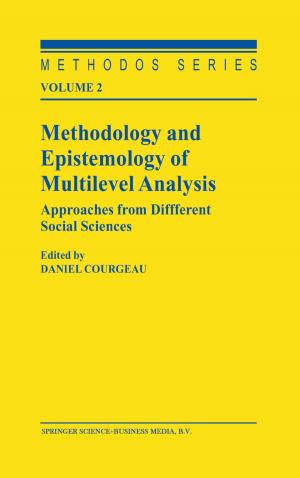| Author: | Max Morgan | ISBN: | 9781310186820 |
| Publisher: | Max Morgan | Publication: | November 23, 2013 |
| Imprint: | Smashwords Edition | Language: | English |
| Author: | Max Morgan |
| ISBN: | 9781310186820 |
| Publisher: | Max Morgan |
| Publication: | November 23, 2013 |
| Imprint: | Smashwords Edition |
| Language: | English |
Alpha began as an intellectual diary and gradually evolved over the years into an exploration of scientific and mathematical foundations. Essentially philosophical in approach, the work undertakes a conceptual critique of terms and ideas commonly found in scientific literature. The viewpoint adopted always remains from the outside of those various disciplines, rather than one which enters the fray of the contemporary scientific community’s problem solving discussions. Overall, Alpha’s philosophical style resembles more a pre-modern one, although it’s unlikely traditionalists would concur with the end results. Thus the work’s subtitle, “Musings on a Philosophy of Nature,” which returns to an expression such as natural philosophy to indicate the topic rather than the more contemporary philosophy of science.
Basically in two parts, the first one concentrates upon exploring a philosophy of mind in general, what minds are, what they can and cannot do. Can minds be typed or classified according to qualitative differences, or are they all the same basic kind of thing with varying capabilities? How might different types of minds see the world and relate to each other? After considering these kinds of topics, the work moves to the second major part, Applications. There, Alpha explores the implications such a philosophy of mind would have upon certain disciplines and endeavors. Once might fairly characterize all of this as rather intensive.
Alpha began as an intellectual diary and gradually evolved over the years into an exploration of scientific and mathematical foundations. Essentially philosophical in approach, the work undertakes a conceptual critique of terms and ideas commonly found in scientific literature. The viewpoint adopted always remains from the outside of those various disciplines, rather than one which enters the fray of the contemporary scientific community’s problem solving discussions. Overall, Alpha’s philosophical style resembles more a pre-modern one, although it’s unlikely traditionalists would concur with the end results. Thus the work’s subtitle, “Musings on a Philosophy of Nature,” which returns to an expression such as natural philosophy to indicate the topic rather than the more contemporary philosophy of science.
Basically in two parts, the first one concentrates upon exploring a philosophy of mind in general, what minds are, what they can and cannot do. Can minds be typed or classified according to qualitative differences, or are they all the same basic kind of thing with varying capabilities? How might different types of minds see the world and relate to each other? After considering these kinds of topics, the work moves to the second major part, Applications. There, Alpha explores the implications such a philosophy of mind would have upon certain disciplines and endeavors. Once might fairly characterize all of this as rather intensive.















